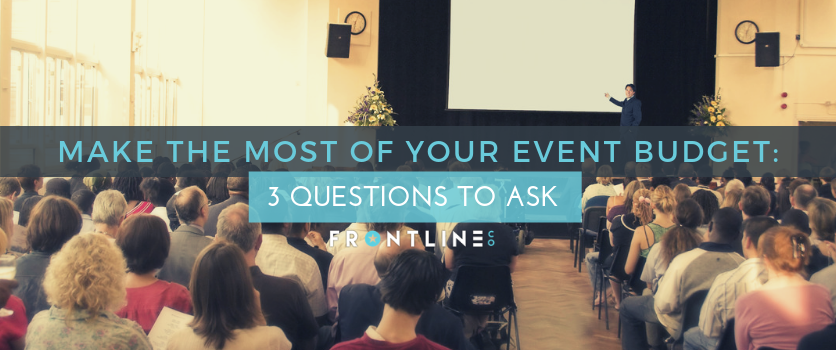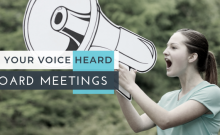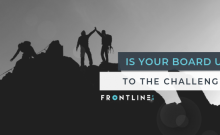Association conferences, seminars and experiences are one of the biggest benefits your organization provides its members. Here’s where you face a huge challenge: how do you make your events cost-effective while balancing value to your members?
It’s a tightrope act. On the one hand, you’re charged with delivering an event that makes it worthwhile for members to invest their dollars and take time away from the office. On the other, you have to operate within a budget that works for your association. Spend too much and your organization will go broke; invest too little, or in the wrong features and programming, and you risk losing member interest.
The good news is you can find a good balance between member value and your budget by asking yourself the right questions in the planning stages. The answers to the questions below will guide you toward producing an event that brings members in and sends them home happy.
Are you providing a great experience?
Your goal in producing a great event doesn’t stop at the end of the night. You want people to return, year after year. To keep them coming back for more, here are 3 critical considerations to include in your planning process:
- Quality programming: offer interesting, educational and relevant speakers and seminars to help attendees justify the time away from the office.
- Enjoyable environment: select a convenient location, comfortable facility and food that members will enjoy.
- Value for the expense: attain a good balance between providing programming your attendees will benefit from, and an admission price that will benefit your organization.
What are your budget priorities?
Nearly every association event starts with a number, and that figure can be modest or monumental. The key is to be smart with your budget and prioritize spending on those items will provide the greatest value for your attendees. For example, you could hire a six-figure, high-profile keynote speaker, but a more reasonably priced speaker known in your field might attract more members and provide better value.
I’ll share a couple helpful hints for planning event expenses.
- Avoid the fun-but-forgettable giveaway. Everyone likes getting swag, but the thrill is fleeting. No one will say, “Wow, that conference was okay—but they gave away AWESOME travel mugs!” Money spent on premiums might be better directed toward programming.
- Priciest isn’t always preferred. When planning food (usually the biggest line item on an event budget), be sure to consider the programming or activity first. An expensive key-note speaker means you’ll want to limit distractions. In that case, a sit-down meal with servers might make the most sense. If you want to encourage networking, a tray of grab-and-go sandwiches or a buffet might encourage attendees to move around and connect with others. Know your event goals and align your budget to support them, not hurt your results.
What are you charging–and is the price right?
A conference serves as an excellent opportunity to bring in non-dues revenue that supports the mission of your organization. Unfortunately, sometimes association and not-for-profit organizations struggle with money-generating ventures.
You need to get comfortable with charging for events–for the good of your association. The money you take in from attendees and vendors for conferences, educational seminars and other programming enables you, in turn to invest in quality programming for your members and customers down the road. With that in mind, the price tag you put on an event should recoup the cost of production (renting the space, hiring staff, paying speakers, etc.) at a minimum. But think about event revenues as an opportunity to reduce reliance on membership dues and drive even more impact for your members and your mission.
How do you know if your members and vendors had a great experience? Ask them! A well-crafted post-event evaluation is an incredibly useful tool in gauging how you did this time, and how to do better next time. Talk to Frontline–we can help you check in with members and attendees on everything from the usefulness of the speakers, to the fitness of the location, to the value for the money spent on the event. Those answers provide a powerful foundation for setting the program, budget and features for your next event, so you can provide members with the best user experience possible.






